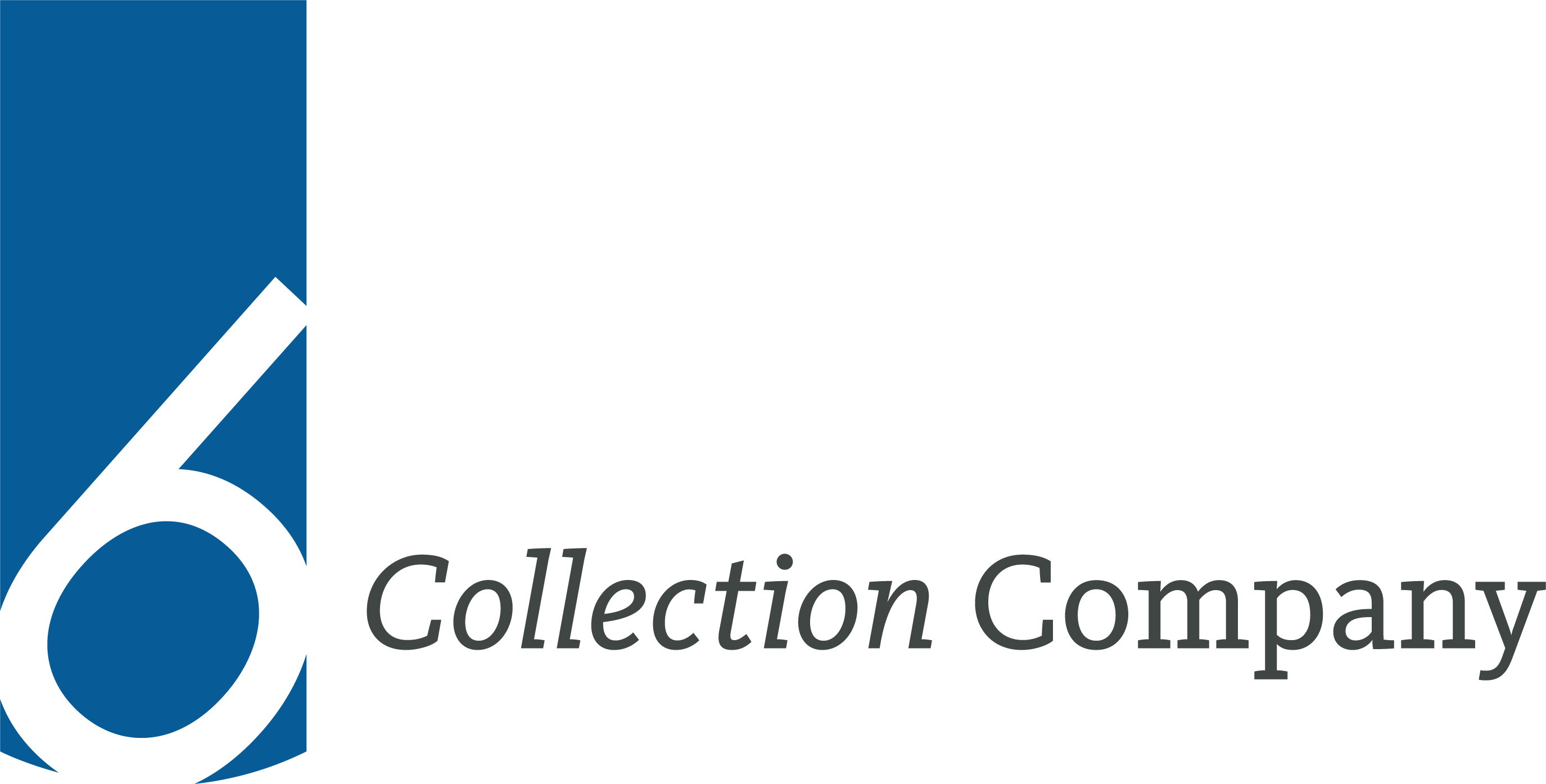Debt Collection Lithuania: recover your claims in the Baltic States
Do you have a customer in Lithuania who is not paying an invoice? Is your debtor not responding to your reminders? An outstanding debt abroad is something that many international entrepreneurs fear. After all, you don’t speak Lithuanian and are not familiar with the applicable laws and regulations.
With the specialized assistance of Collection Company, recovering an outstanding debt in Lithuania fortunately becomes much less difficult than it may seem at first glance. We have years of experience in collecting international claims and use an extensive network of lawyers, legal experts, and bailiffs in Lithuania.
- Nationwide coverage in Lithuania
- One dedicated English speaking contact
- Proven track record
- Tailor-made services for each case
- Expert advice and a transparent process
- 24/7 online access
Specialized in Lithuanian debt collection
Do you have a business client in Lithuania who seems to have disappeared off the face of the earth? Or do you have another outstanding debt in the Baltic state that remains unpaid? If you have outstanding debts abroad, it is important to take action immediately. The longer you wait, the greater the chance that you won’t be able to recover anything from your debtor.
Collection Company specializes in European debt collection and has a wide network of debt collection specialists in Lithuania. Together with them, we ensure that you get what you are entitled to.
In addition, you will work with one dedicated English speaking contact, who will oversee the collection process. This way you don’t have to contact parties in Lithuania yourself. Throughout the collection process, you can monitor the progress in your own Online Cockpit.
Do you have an unpaid debt in Lithuania? Leave your details and one of our debt collection specialists will contact you to discuss your claim.
Submit your debt collection case
Do you have a debt collection case in Lithuania? Please leave your contact information and one of our specialists will get in touch with you as soon as possible to discuss your case.

Why choose Collection Company for your debt recovery in Lithuania?
- Global coverage
- One dedicated English speaking contact
- Experienced debt collection specialists with knowledge of Lithuanian legislation
- Broad network with local lawyers and bailiffs
- Seamless connection from extrajudicial to judicial action
- Effective local approach
- 24/7 tracking through your own Online Cockpit
How does debt collection (Skolų išieškojimas) work in Lithuania?
Just like in most other countries, the debt collection process in Lithuania is broadly divided into two phases: extrajudicial and judicial. Amicable or extrajudicial debt collection encompasses the entire process leading up to a potential legal procedure. At this stage the debt recovery procedure primarily involves contacting your debtor in writing, making phone calls, and building a case (in case your debtor refuses to pay). This is often the most effective way to recover your money.
If extrajudicial debt collection doesn’t yield the desired results, we can initiate a judicial debt collection procedure by taking your debtor to court in Lithuania. In this process we work closely with Lithuanian lawyers and attorneys. If the court deems your claim valid, a payment order will be issued, enabling a bailiff in Lithuania to enforce it.
Even if your debtor isn’t willing to pay voluntarily, we can ensure that you receive your money.
- Upload your invoice online
- We'll start your case
- We'll start with the debt collection process
- Together we decide the best strategy for collecting your debts
- Monitor the status of your case 24/7
- Any questions? Your personal accountmanager will answer them all!
- Your invoice is payed
Extrajudicial debt collection in Lithuania
We always prefer to start a collection process with an extrajudicial trajectory. Why? In many cases, a reminder with our name on it, combined with a phone call to your debtor, is sufficient to get the invoice paid. This makes extrajudicial collection the fastest way to collect your claim.
Furthermore, the relationship with your customer doesn’t turn sour immediately (which would be the case if we were to take immediate legal actions). Perhaps there is a genuine misunderstanding or your debtor has a plausible reason for the late payment. With the procedure you give the debtor the chance to pay their debts in good faith.
During the extrajudicial collection, we will contact your debtor 16 times within a period of three weeks. We gradually increase the pressure. Ultimately, your debtor will receive a final reminder. In that letter, we clearly state that legal steps will be taken if payment is not made within the specified period, and that (increasing) costs are involved with that.
Fortunately, most debtors are wise enough not to let it get that far. They pay the outstanding invoice, allowing us to close the case.
Judicial debt recovery: the court procedures
But what if your debtor in Lithuania still refuses to pay after an extrajudicial collection? Then there is often no other option but to take legal action.
In consultation with you as the creditor, we will file a case with the district court (for claims under 43,000 euros) or the regional court (for claims over 43,000 euros) in your debtor’s region. If your debtor does not dispute the claim, we only need to submit the debtor’s details, the amount of the claim, and evidence of the claim (such as an invoice).
The court then issues a payment order, which is delivered to your debtor. They then have twenty days to object to the payment order. If they do, a regular civil procedure follows.
Mediation
If the debtor does not agree with an invoice you have sent, claims that products were not delivered, or disputes the claim for any other reason, we can request the court to mediate. Since 2011, judicial mediation has existed in Lithuania. In this process, a judge or assistant judge is assigned as a mediator. If both parties reach an agreement, it is recorded by the court. The agreement holds the same value as a court judgment.
Civil lawsuit
If we cannot reach an agreement during the mediation process, we will initiate a civil procedure. Depending on the amount of the claim, it will be conducted in the district or regional court in the debtor’s jurisdiction.
Once we have filed the civil case, the court will send a summons to your debtor, requiring them to appear before the judge.
Both parties will then have the opportunity to submit evidence to support their position. It is also possible to request the court to summon witnesses. In a hearing, both parties can present their arguments. After considering the positions of both parties, the judge will make a ruling.
If the judge rules in your favor, you can use the judgment to enlist a bailiff to enforce the judgment by seizing assets from your debtor (if they do not pay voluntarily after the lawsuit).
Obtaining a European Payment Order
Lithuania is part of the European Union. This means that in some cases, it is not necessary to go to court in Lithuania. If your debtor does not contest the claim, it is also possible to obtain a European Payment Order.
A European Payment Order is intended for cross-border, uncontested claims within the EU and can be obtained from the court in the creditor’s country. We can apply for such a payment order by submitting some standard forms to the court in the EU member state you reside. The judge can then issue a European Payment Order based on these forms.
Your debtor then has 30 days to object to the payment order. If he does not do so, the payment order becomes enforceable. A Lithuanian bailiff can then directly enforce the payment from your debtor, without the need for a local court to decide on it.
The European Payment Order can only be requested if your debtor does not contest the claim. This means that he does not disputes the legitimacy of the invoice, but simply does not pay. Do you want to know if your claim qualifies for a European Payment Order? We are happy to find out for you.
European Small Claims Procedure
In addition to the European Payment Order, there is another European procedure that we can rely on: the European Small Claims Procedure (ESCP). This procedure is intended for cross-border claims under 5,000 euros.
The ESCP is conducted through the court in your own country. Furthermore, the entire legal process is digital. We submit your claim to the court and notify your debtor. Both parties can submit digital evidence and support their position, if necessary, through a video conference during a hearing.
Ultimately, the court makes a judgment. The judgment is enforceable in all EU countries (except Denmark). Therefore, we can seize assets from your debtor in Lithuania based on this judgment.
Enforcement procedures
Once we have a mediation agreement or a court ruling, the judge will issue a payment order at our request. With that, we can engage a Lithuanian bailiff (antstolis) to actually collect your money for you.
A bailiff has the authority to seize the property of your debtor with a payment order (or European Payment Order). This can include seizing income, bank accounts, or real estate of your debtor. Items that are seized can be publicly sold by the bailiff to settle the outstanding debts.
Interim attachment in Lithuania
If there are reasons to believe that a future court judgment will not be enforceable, for example because your debtor is dissipating or concealing assets during the lawsuit, it is possible to take precautionary actions before the court proceedings. Assets of your debtor are temporarily put under attachment on behalf of the court, as long as the case is pending.
For example, we can ask the court to freeze bank accounts during or before the judicial procedure. It is also possible to prohibit your debtor (through an annotation in the land register or vehicle register) from selling real estate or vehicles.
To do this, we must substantiate to the court that your debtor is continuously trying to evade his payment obligations. Your debtor is usually not informed in advance about the preliminary measures.
Bankruptcy proceedings in Lithuania
One of the most powerful measures to compel your debtor to pay is a bankruptcy petition. Nobody wants to be declared bankrupt and lose their business or assets. That is why most defaulters choose to pay directly when a bankruptcy petition is filed.
Whether it is possible to file for bankruptcy of your debtor depends on whether it is a natural or legal person.
In Lithuania, a company can be declared bankrupt if it fails to meet its payment obligations and the outstanding debts represent at least half of the book value of the company.
The bankruptcy of a natural person can be requested in Lithuania if the debt amounts to at least 25 times the legal minimum wage.
If we file for bankruptcy of your debtor, other creditors are summoned to report to a trustee appointed by the court. Then your defaulter must submit a three-year recovery plan, which is presented to the creditors. If they agree, your debtor must abide by these agreements.
If an agreement with the creditors cannot be reached, the debtor is declared bankrupt. Your debtor must hand over all documents and assets to the trustee, who will try to pay off the creditors as much as possible by selling the bankrupt estate.
However, it does not always have to come that far. As soon as your debtor pays the outstanding debt in a proper manner, we can withdraw the bankruptcy petition.
Need advice on your case?
Submit your contact details and one of our debt collection specialists will contact you immediately!

Legal areas of debt collection in Lithuania
Whether it’s unpaid wages, outstanding invoices, or a rental or purchase dispute, Collection Company recovers your claim. We carry out international debt collection services in various legal jurisdictions in Lithuania.
- Construction law
- Rental and leasing
- Buying and selling
- Labor law
- Agency agreement
- Transport
- Damages and wrongful acts
We assist the client directly, but also work for intermediaries such as lawyers and accountants.
Anything else we can help you with in Lithuania?
- Reliable advice on contracts and terms
- Credit information on companies in Lithuania
- Disputes regarding retention of title and right of reclamation
- Mediation in reaching private agreements and settlements
File your claim immediately
Submit your claim directly to us via the debt collection registration form. Would you prefer to first consult with one of our debt collection specialists? Leave your details or call us at 070 – 762 0330.
Free advice on debt collection in Lithuania
Submit your contact details and one of our debt collection specialists will contact you immediately!

FAQ: Frequently Asked Questions about debt collection Lithuania
FAQ: What documents do I need?
If you want to file a claim, we kindly request that you provide us with (copies of) all the paperwork related to the claim. This may include the signed contract, sent invoices, or reminders. These documents will help us support the claim if we need to initiate legal proceedings.
We understand that a file may not always be complete, and that’s not a problem. Together with our debt collection specialist, you can explore the documentation you do have to support your claim.
For your file, we would like to use the following documents:
- A copy of the agreement
- Email correspondence confirming the agreement
- A fax confirmation
- Your summary of the agreed terms
- Invoices
- Reminders
- A copy of your general terms and conditions
- Any proof of delivery, if available.
FAQ: Does a retention of title apply in Lithuania?
In Lithuania it is possible to include a retention of title in the purchase conditions. This means that the buyer only becomes the owner of the items once the invoice is fully paid. In Lithuania, the retention of title is only legally valid if it is registered in the designated register.
FAQ: Is there a statute of limitations for my claim?
For a late paid invoice, a statute of limitation of 10 years applies. This is calculated from the moment the invoice was originally due. It is important to initiate legal proceedings before the expiration of the statute of limitations. Once the 10 years have passed, your claim will expire.
FAQ: Why not hire a debt collection agency in Lithuania?
Is it not better to hire a debt collection agency based in Lithuania, some creditors wonder. That is certainly an option, but the disadvantage of a Lithuanian debt collection agency is the language barrier. Additionally, debt collection agencies generally do not have lawyers, attorneys, and bailiffs. If an amicable collection is ineffective, you will have to find a Lithuanian lawyer and Lithuanian bailiffs for a legal procedure yourself.
Moreover, Lithuanian debt collection agencies face more difficulties in requesting a European Payment Order in your country.
At Collection Company we provide full debt recovery services. As the creditor you communicate with our English speaking debt collection specialist. They coordinate the process and maintain contact with our local lawyers, attorneys, and bailiffs. This way, we can offer the entire debt collection procedure for you, from the amicable phase to a possible lawsuit. If your claim qualifies, we can easily request a European Payment Order for you.
FAQ: Why not hire a collection agency in Lithuania?
A question that many of our clients have: why shouldn’t I contact a Czech debt collection agency? First of all, you would then have to deal with a language barrier. Moreover, a debt collection agency in the Czech Republic cannot easily request a European Payment Order. Additionally, if an extrajudicial procedure is not effective, you will have to search for lawyers, attorneys, and bailiffs yourself to initiate a legal procedure.
Collection Company can handle every aspect of the debt collection trajectory (amicable and judicial) for you. You will have an English speaking dedicated debt collection agent as a contact. Where necessary, we collaborate with the best bailiffs, attorneys, and lawyers in the Czech Republic.
Why 40.000 customers have gone before you
- The #1 collection company in the Netherlands and abroad
- Regional & local specialists
- Years of experience with international invoices
- Your own personal contact
- Extensive advice on the legal process
- Monitor the status of your case 24/7
Meet our specialized legal team
- Joost Konings LLMLaw expert
- May Leung LLMLaw expert
- Wesley Boeters LLMInterim lawyer




